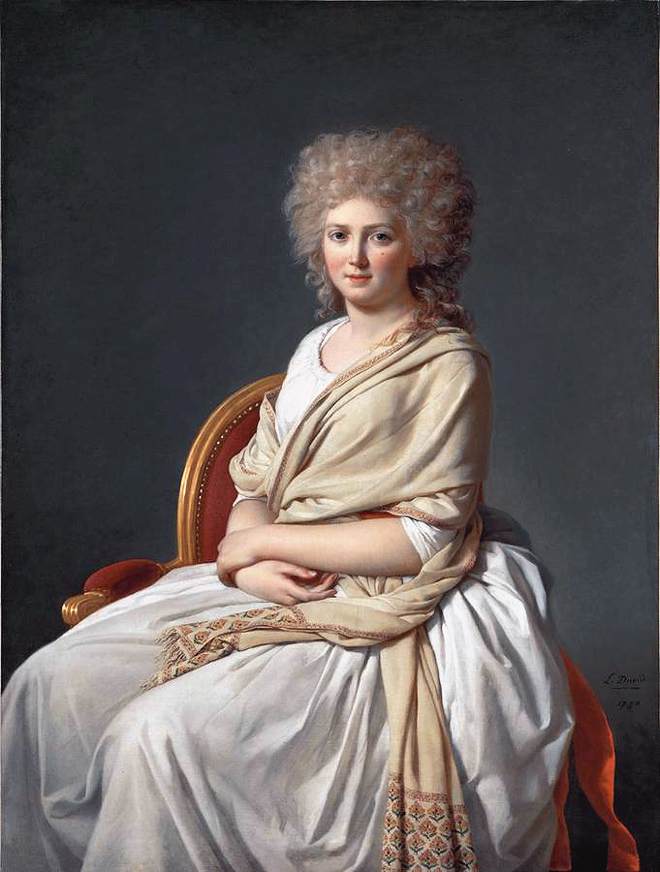Description
The painting Anne-Marie-Louise Thélusson, Comtesse de Sorcy by Jacques-Louis David is a masterpiece of French Neoclassicism. The composition of the work is impeccable, with the figure of the countess at the center of the painting, surrounded by symbolic elements that denote her social status and position in society.
The artistic style used by David is very characteristic, with meticulous attention to detail and precision in the representation of the human figure that make him a master of realism. The painting is a sample of his ability to capture the essence of the person portrayed, with an intense look and an elegant gesture that denote the sophistication and refinement of the countess.
The use of color is subtle but effective, with a palette of warm, earthy tones that create a feeling of warmth and closeness. The dark background highlights the figure of the countess, who seems to emerge from the darkness with an imposing and majestic presence.
The history of the painting is interesting, since it was commissioned by the Countess herself as a gift to her husband. David worked on the painting for several years, perfecting every detail until he achieved a masterpiece that has been critically and publicly acclaimed since its creation.
Little-known aspects of the painting include the fact that the Countess was one of the most influential women of her day, with political and social connections that made her a leading figure at the French court. The painting is a testament to his power and elegance, and has been considered one of the most important works of French Neoclassicism.
In short, the painting Anne-Marie-Louise Thélusson, Comtesse de Sorcy by Jacques-Louis David is a masterpiece of French Neoclassicism, with impeccable composition, distinctive artistic style, and subtle yet effective use of color. The story behind the painting and little-known aspects of the countess's life make it a fascinating work of great historical and artistic value.

